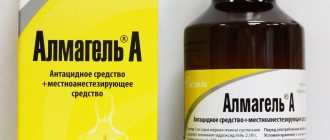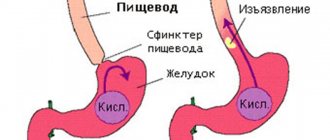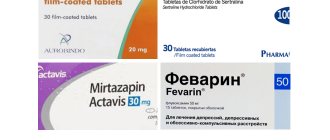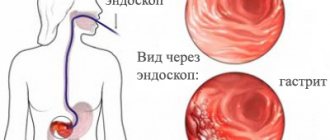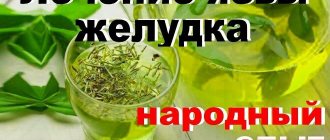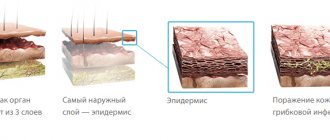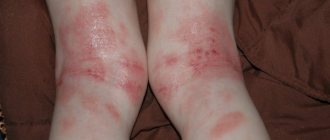The condition of heartburn is familiar to almost every person. It can manifest itself not only with gastrointestinal pathologies, but also due to overeating or during pregnancy. Heartburn is a feeling of intense burning behind the breastbone. Sometimes it turns out to be so painful due to the duration of its occurrence that a person is ready for any action. Heartburn is accompanied not only by a burning sensation, but also by other symptoms. How heartburn manifests itself needs to be considered in more detail.
Description
Heartburn is a burning sensation that spreads along the esophagus.
Each of us has experienced this feeling at least once in our lives. Heartburn can occur as a result of eating inappropriate food, in which case it is not dangerous, no medical attention is required, you just need to eliminate the product that caused such discomfort. However, it is not uncommon for heartburn to be a symptom of a serious illness that requires medical intervention. Therefore, if heartburn bothers you about 2 times a week for a long time, you should consult a doctor.
Heartburn appears mainly an hour after eating, less often after intense physical activity or in a horizontal position. Both men and women can experience this condition in equal proportions.
The most common causes of heartburn are:
- smoking, drinking alcohol, predominance of fatty, spicy, too spicy foods in the diet; foods such as chocolate, citrus fruits, tomatoes, fresh bread can also provoke heartburn;
- taking certain medications, for example, aspirin, ibuprofen;
- diseases of the gastrointestinal tract (GERD (gastroesophageal reflux disease), peptic ulcer of the stomach and duodenum, gastritis);
- long-term stressful situations.
Fresh juices
Juice from fresh vegetables relieves discomfort and has a beneficial effect on the human body as a whole. Juices are drunk separately or mixed. Drinks help prevent the phenomenon. There are practically no side effects from the juice. Vegetable juices are the best way to prevent the symptom.
Carrot, beet, and cabbage juice should be consumed 3 tablespoons before meals, and the unpleasant symptom will not bother you after the meal.
Potato juice
Potato juice is considered the most effective remedy for heartburn. Improves the condition of a patient with gastritis. The product is safe and available. Pregnant women are allowed to take it.
You need to prepare a healthy drink before drinking. The tubers are thoroughly washed, peeled and rubbed. The mass is squeezed through gauze. The drink is left to stand for 5 minutes and drunk.
If attacks are regular, you need to drink a glass of drink in the morning an hour before breakfast for 10 days.
Potato juice is not recommended for people with diabetes.
carrot juice
Carrots cope excellently with high acidity and can alleviate the condition if heartburn medications are not available. You can eat carrots raw or make juice. Boiled root vegetables help calm the stomach.
To make juice, you need to take the root vegetable and put it through a juicer. It is recommended to add cream for better absorption of the product. The juice is diluted with water if the drink is too concentrated.
If you don’t have a juicer, it’s easy to grate the root vegetable and squeeze through cheesecloth.
Symptoms
Photo: mojzheludok.com
Depending on the location of heartburn, there are 3 types:
- pharyngeal heartburn (a burning sensation occurs in the throat);
- epigastric heartburn (burning sensations and discomfort occur in the epigastric region);
- retrosternal heartburn (burning sensations are localized behind the sternum; this type of heartburn occurs more often in a horizontal position and with deep bends).
In addition to the main burning sensation, there may be complaints of nausea and vomiting, excessive salivation, a feeling of “lump in the throat,” swallowing disorders, and hoarseness of the throat. All these symptoms refer to manifestations of some disease. Often people suffering from heartburn complain of belching. It can be “air”, which is associated with the release of gases from the gastrointestinal tract, mainly from the esophagus and stomach into the oral cavity. There is also sour belching, which is most often associated with stomach diseases, accompanied by an increase in the acidity of gastric juice. With prolonged heartburn, a chronic cough may occur, which few people associate with a problem with the gastrointestinal tract; basically everyone begins to think that the problem has arisen with the respiratory tract. However, after successful treatment of the underlying disease, the symptoms of which were heartburn and cough, both are eliminated.
In what cases should you consult a doctor?
It is considered normal if the gastrointestinal disorder completely resolves within a few hours (up to 6). If gas formation or heartburn symptoms do not disappear during this period, you should at least consult a doctor. The first step is to see a therapist, and then, at his discretion, you may have to talk to a gastroenterologist.
A long-term disorder can also occur against the background of some infectious disease, including influenza, ARVI, and tonsillitis. During treatment, nausea, heartburn, heaviness in the abdomen, bloating, and frequent belching are normal symptoms. This is a natural reaction of the body to a high concentration of toxins in the intestinal cavity, stomach or nasopharynx. With the help of diarrhea, the body simply gets rid of them, and belching and flatulence are the release of accumulated gases (which are produced by viruses and bacteria).
Ignoring a lingering disorder can lead to the development of a more serious condition.
Prolonged flatulence in combination with heartburn can provoke the appearance of ulcers and hernias. And cirrhosis of the liver is a common cause of cancer. Therefore, ignoring such problems is categorically not recommended and is completely life-threatening.
Diagnostics
Photo: medaboutme.ru
Considering that often long-term heartburn is a symptom of diseases of the gastrointestinal tract, it is necessary to direct the diagnostic spectrum specifically to this area. To begin with, the time of occurrence of heartburn, what it is associated with, and the frequency of occurrence are clarified. Then general laboratory tests are prescribed to assess the condition of the body. Thanks to a general blood test, it is possible to detect the presence of an inflammatory process (increased ESR, leukocytosis), anemia (a decrease in hemoglobin content, which may be accompanied by a decrease in red blood cells) may indicate a peptic ulcer.
FGDS (fibrogastroduodenoscopy) is performed to visualize the esophagus, stomach and duodenum. This study helps to assess the motility of organs, the condition of the mucous membranes, determine the presence of refluxes, erosions, ulcers, polyps and tumors, and perform a biopsy of the affected area. After the pathological material is collected, its histological examination takes place. This method is quite informative and does not bring any painful sensations, so you should not be afraid at all if your doctor has prescribed this study.
Since heartburn most often appears in diseases associated with changes in acidity (GERD, peptic ulcer), it is important to undergo a study with direct measurement of pH in the esophagus, stomach and duodenum.
As is known, the mucous membrane of the stomach and duodenum can be affected by H. Pylori. This is a fairly common pathogen that leads to the development of gastritis, peptic ulcers and even adenocarcinoma. It may be asymptomatic or lead to dyspepsia of varying severity. There are various research methods aimed at identifying this pathogen, including biopsy of the mucous membrane.
What diseases does it indicate?
Prolonged or frequent flatulence in combination with heartburn may be a sign of the following diseases:
ulcerative processes in the gastrointestinal tract; hernia of the food cavity (with pushing through the diaphragm); gastritis; inflammation of the esophagus; cholecystitis; obesity; enteritis; impaired intestinal motility; gallstones; cirrhosis of the liver; intestinal obstruction; the presence of tumors in the gastrointestinal tract; lactose intolerance (lack of synthesis of necessary enzymes).
Many of the diagnoses may even overlap. Most of them (enteritis, cirrhosis, tumors, cholecystitis, inflammation, gastritis, intestinal obstruction) are obvious heirs of frequent consumption of low-quality food or a radically disrupted diet.
Lactose intolerance is a congenital defect of the endocrine system. Unfortunately, the only way to prevent them is by taking synthetic analogues of hormones to make up for the difference in enzymes.
But hernias are signs of previously suffered ulcers or sudden loss of body weight. But the doctor gives a lot of instructions to prevent their occurrence. If you ignore them, this will be the result.
Flatulence and heartburn are precursors to the development of more severe diseases. This factor should be taken into account.
Treatment
Photo: static.medportal.ru
First you need to find out the cause of heartburn. If this is an isolated case related to nutrition, medical attention is not required; to eliminate it in this case, a change in diet and lifestyle will be required. If heartburn is a constant concern, which is often associated with pathology of the gastrointestinal tract, medical intervention is necessary.
There are some changes you should make in your diet:
- refrain from foods that irritate the gastric mucosa (onions, garlic, spicy foods, citrus fruits);
- limit the consumption of fried foods, rich broths from meat and fish;
- do not overeat, do not eat too quickly. You should chew your food thoroughly, eat 5-6 times a day (the portion size should be small);
- eat low-fat foods, for example, boiled poultry, low-fat fish;
- After eating, you should not immediately take a horizontal position, so as not to provoke the reflux of gastric contents into the esophagus.
It is important to stop smoking and drinking strong drinks, since both of them irritate the gastric mucosa. In addition, it is strongly recommended to avoid conditions that increase abdominal pressure. To do this, you must avoid lifting heavy objects, tight clothing, in particular a tight belt. For people suffering from a painful cough, it is important to receive appropriate treatment to relieve the cough.
The main drugs that relieve heartburn are antacids. Their action is to neutralize the acid contained in gastric juice.
Considering that hydrochloric acid and pepsin have a damaging effect on the mucous membrane of the stomach, it is important to protect it through the use of gastroprotectors. These drugs form a protective film on the surface of the mucosa, which reduces the effect of damaging factors.
To reduce the secretion of hydrochloric acid, antisecretory drugs are used. These include proton pump blockers and histamine H2 receptor blockers. If you choose one of these two, preference is given to proton pump blockers. Therefore, you can see that they are the ones most often prescribed.
To improve gastrointestinal motility, prokinetics are prescribed. These drugs not only improve motility, but also increase the tone of the esophageal sphincter, which plays a special role in the treatment of GERD.
Preventing heartburn
Whatever the cause of heartburn, there are measures that will definitely benefit you:
- eat right. Minimize the consumption of fatty, spicy and salty foods. Try to consume less chocolate, coffee, alcohol, and carbonated drinks. Avoid large meals. Food should be chewed thoroughly;
- do not go to bed immediately after eating, do not lift heavy objects or bend over;
- wear clothes that do not compress the abdominal cavity;
- watch your weight;
- quit smoking.
Medicines
Photo: medaboutme.ru
Antacids are divided into absorbable and non-absorbable. The first distinctive feature is the rapid onset of action. However, there is also an unfavorable side to these drugs: when hydrochloric acid is neutralized, a large amount of carbon dioxide is released, which leads to flatulence, belching, and reflux. Non-absorbable antacids are able to neutralize hydrochloric acid without the subsequent rebound phenomenon. This is achieved by binding hydrochloric acid into insoluble salts, which are subsequently excreted in the feces. These include: phosphalugel, almagel, maalox, magalfil. These drugs contain a combination of several active ingredients. It is worth noting that drugs containing large amounts of aluminum as one of the components can cause constipation, so older people should be careful when taking them.
From the group of antisecretory drugs, proton pump blockers (omeprazole, pantoprozole, rabeprozole, lansoprozole) are most often used. They are prescribed in a course, the duration of which is 1 month, after which a break is taken. It is important to remember that these drugs should be taken strictly 30 minutes or 1 hour before meals. Prescribed in the morning or evening, or twice a day.
Prokinetics stimulate the motor activity of the gastrointestinal tract, increase the tone of the esophageal sphincter, and also have an antiemetic effect. These include metoclopramide, which is a centrally acting drug, and domperidone, which is a peripherally acting drug. The centrally acting drug can cause a lot of side effects (drowsiness, dry mouth, diarrhea or constipation, tinnitus, anxiety, muscle hypertonicity and others), so its use is treated with caution. Domperidone is also not the most harmless drug, but, unlike metoclopramide, it is much easier to tolerate.
Gastroprotectors protect the gastric mucosa from aggressive factors. These include: de-nol, sucralfate (Venter), misoprostol. These drugs are well tolerated by patients of all ages and cause virtually no side effects. A rare occurrence is the appearance of nausea, discomfort in the epigastric region, and dry mouth while taking gastroprotectors.
Activated carbon
Activated carbon can be found in every first aid kit. The product helps not only with poisoning and digestive disorders, but also in the fight against heartburn. It absorbs excess acid, relieving pressure in the esophagus. At the same time, it does not irritate the mucous membranes; pregnant women can use it to combat discomfort.
To eliminate an attack, drink two charcoal tablets, or crush them into powder and stir in milk.
Activated carbon is safe to use. If you do not exceed the permissible dosage, there will be no side effects.

